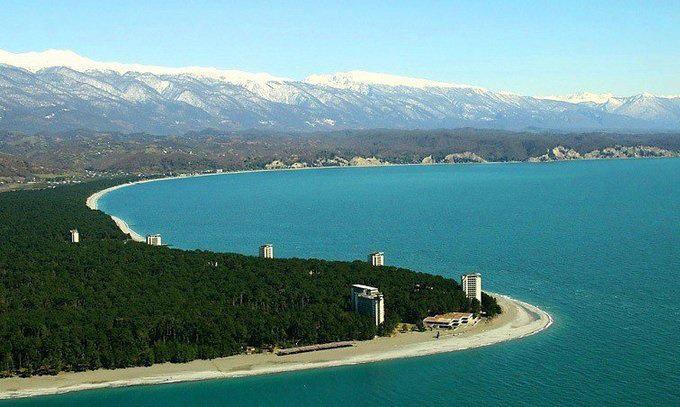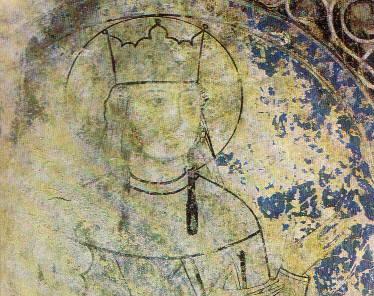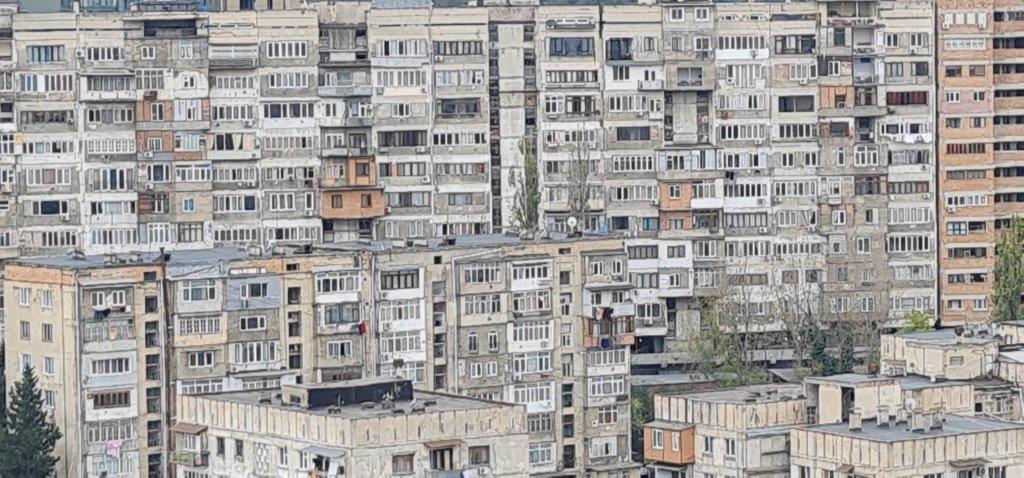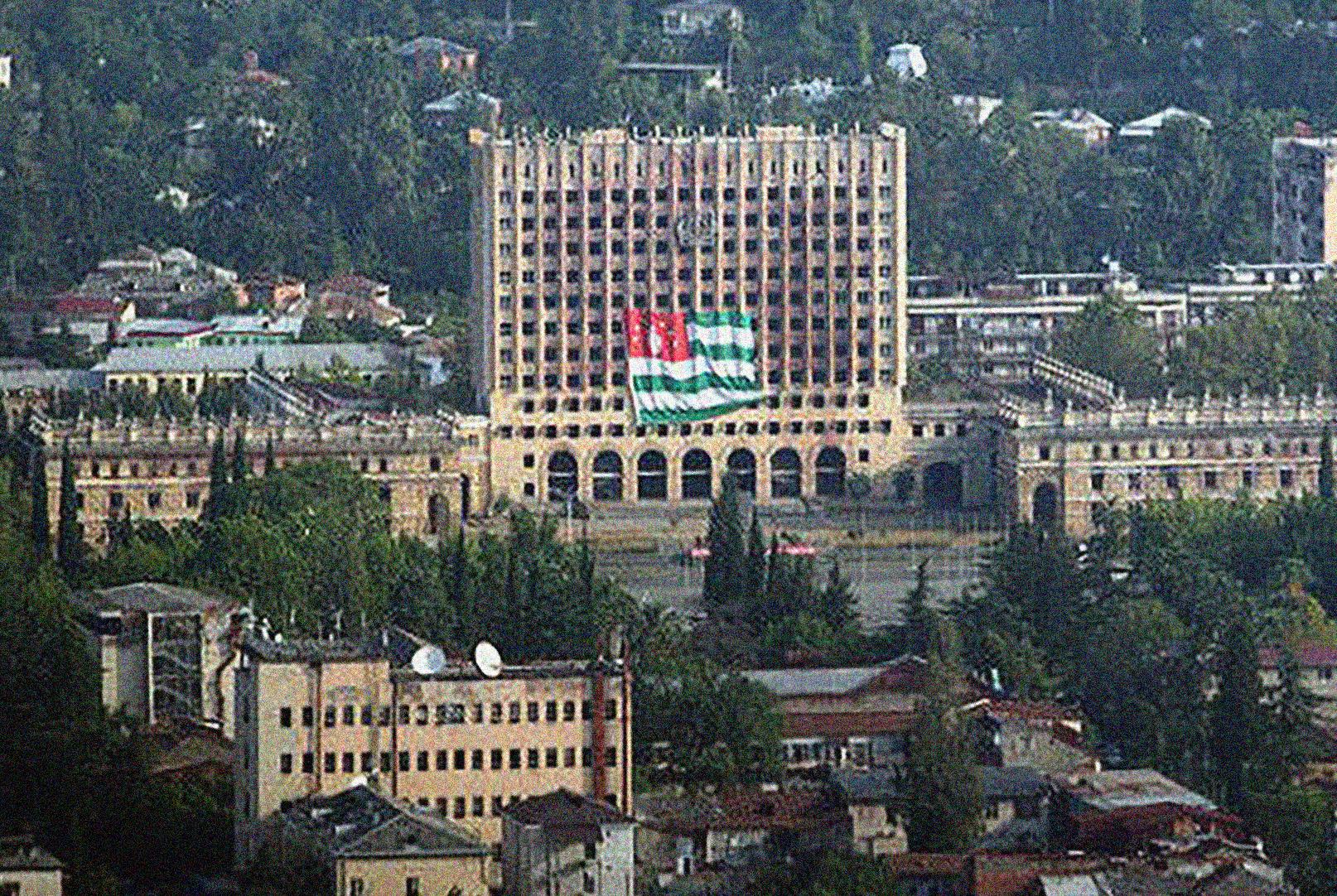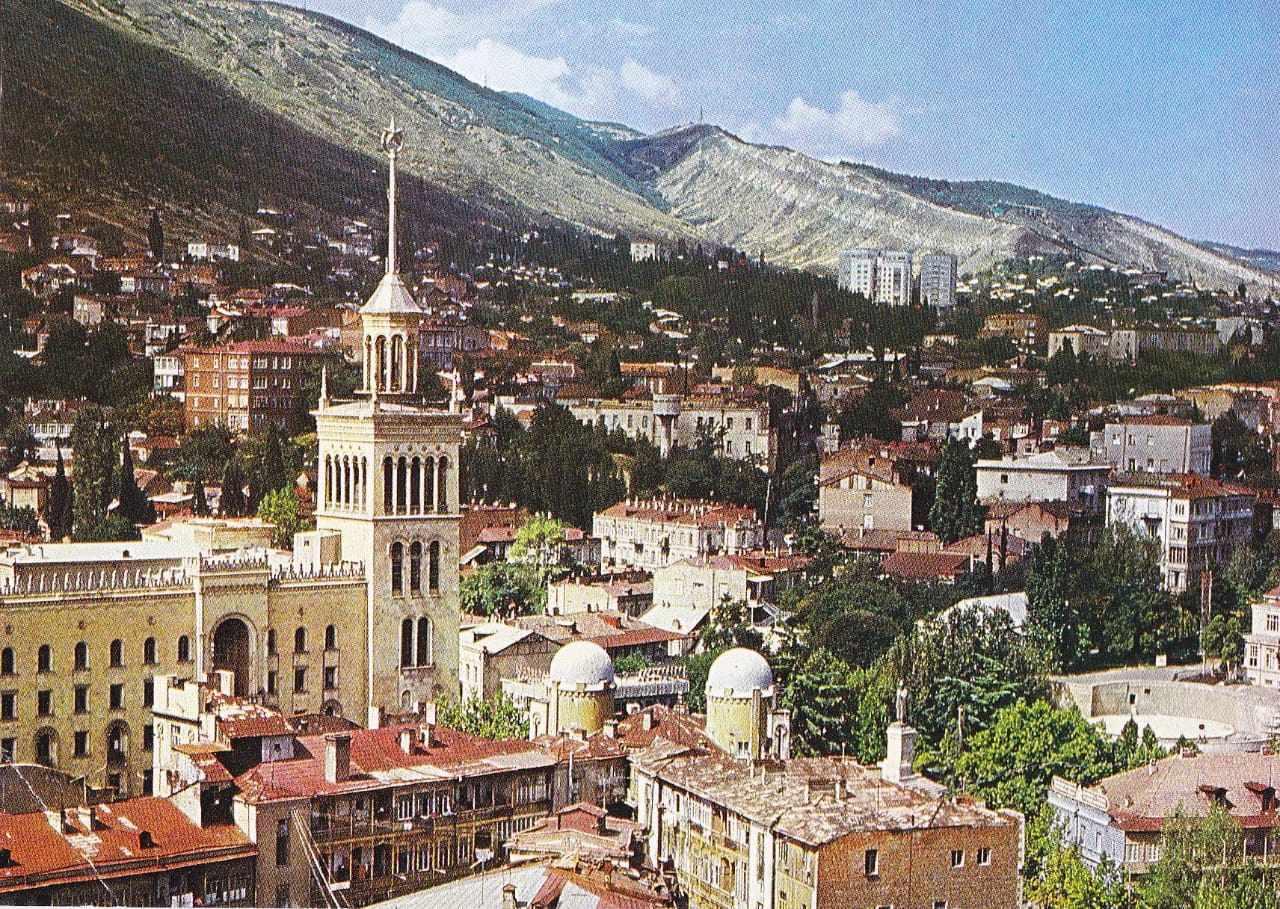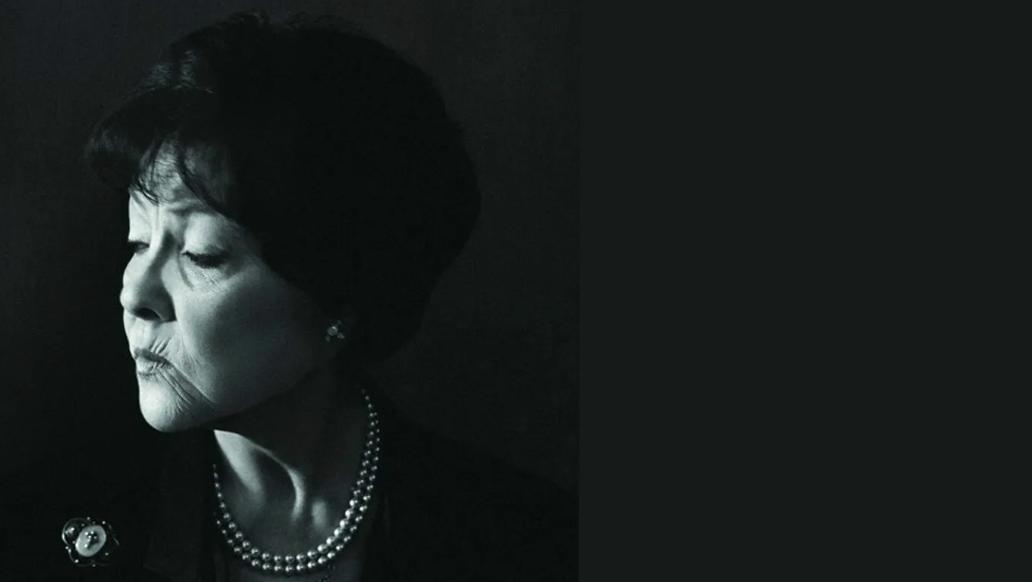Author : Keti Kurdovanidze
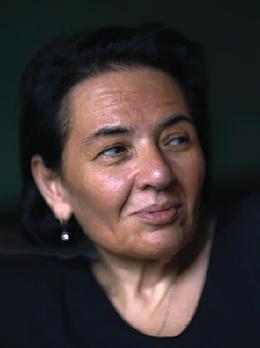
David Kartvelishvili’s novel Megapolis and Physical Persons inspired me to title this article and structure it according to the principle of a puzzle.
Thank you to him for this novel.
The attention of the West to the events taking place in Georgia has recently increased significantly. You may ask, what did they see that wasn’t obvious before? What has alarmed so many reputable organizations and the international community that there are almost no important documents concerning Georgia, in which the name and surname of Bidzina Ivanishvili would not be written in ‘golden letters’? What is particularly important here is the attachment, which changes dramatically from statement to statement, from forum to forum, from conference to conference and creates more and more discomfort for the informal ruler of Georgia and his, now we can safely say, pro-Russian government.
The Western outrage directed at Ivanishvili can stem from various reasons. To avoid our letter resembling the reasoning of Iliko and Ilarion (Iliko and Ilarion: Characters of a popular novel by Nodar Dumbadze, Granny, Iliko, Illarion, and I), I will refrain from speculations. However, it is a fact that international documents portray Ivanishvili first as an informal ruler, then as an authoritarian ruler, and finally as a pro-Russian oligarch who is separating Georgia from the West. The 2024 Munich report notes that Bidzina Ivanishvili, a pro-Russian oligarch and founder of Georgia’s ruling party, is responsible for the country’s recent democratic backslide and its separation from the European Union, despite the wishes of the majority of Georgian society.
This record differs from the previous ones in that regardless of whether Ivanishvili is formally engaged in politics or not, the West still holds him responsible for the current events in Georgia. Nevertheless, the epithets the West has directed at Ivanishvili still leave many Georgians with a feeling of inadequacy. How many things could be added to that record: the one who used the horrible and still not investigated death of Barbara Rafaliyants, who was drowned in a kvevri on the eve of the 2012 elections; to fuel election hysteria, the one who gouged out the eyes of young people on the night of Gavrilov; who filled prisons with political prisoners; who brought back great corruption and crime into the country; and so on. But who will let you? Besides, the format is limited, and no one has much time for writing...
Didn’t ‘that wise man’ know that this day would come sooner or later? Has he lost his ability to analyse to the extent that he doesn’t realize what Putin is getting away with so far is a verdict on his proxies? That’s why, he said, he handed over the reins of power to the ‘correct and worthy’ political force, Georgian Dream, and added formal responsibility as a bonus. However, while reading Nietzsche and Freud, he completely forgot the wisdom of Rustaveli: ‘That which we give makes us richer, that which is hoarded is lost.’
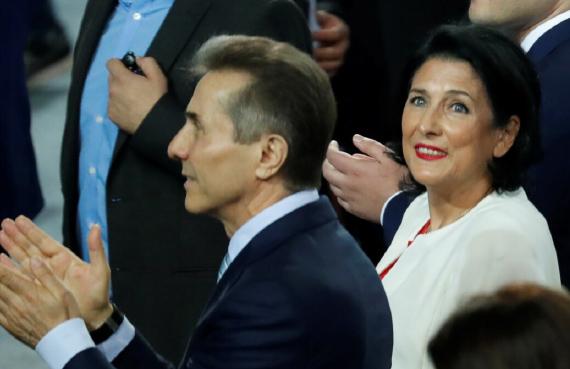
This formal act also required skilful packaging, given his biography—a dark Russian past and proximity to Putin’s entourage—which demanded a counterbalance. Therefore, to dispel any doubts about his pro-Westernism and commitment to democracy, he filled the ranks of the Georgian Dream parliamentary coalition with small ‘pro-Western’ parties and politicians. To attract Europe’s attention, he initially appointed a free thinker who shared his ideas about Nietzsche and Schopenhauer as the president. Then, he brought in a figure from Europe who was initially condemned by the people’s movement and later dismissed from the post of Minister by the government of the National Movement. However, it remains unclear, akin to Bardas Skleros (Bardas Skleros: A Byzantine general who led a wide-scale Asian rebellion against Emperor Basil II during the years 976 to 979.), with whom she was affiliated, when she rebelled against whom and when she betrayed whom. Nevertheless, he brought her in and practically ran the election instead of her.
Salome Zourabichvili’s arrival always brings to mind Tornike Eristavi when David Kurapalat tells him, ‘Why do you need to go to Mount Athos? Don’t we have enough churches and monasteries here?’ Similarly, one might question why Ivanishvili needed Zourabichvili to travel back and forth on such a lengthy journey. Were there not enough Salome-like and proper young ladies adorning our political establishment? But who knew them in the West, or through whose relatives one could reach Putin... In general, Salome was presented to Bidzina as a disgrace to this country.
Ivanishvili created this kind of pro-Western content through artificially creating two-person ‘pro-Western’ parties, whose members, unlike other members of the Dream, at least knew that the Taliban was not a person and the IBRD did not mean having fun with sex workers; through young politicians equipped with certificates from three-month courses at Harvard and Cambridge; with English-language speeches on the international stage imitating the old guard of the Dream, of which those present did not understand a word. With letters of praise commissioned by experienced ‘French Masons’ in the Western press, for which tens of thousands of dollars were paid to disguise Bidzina Ivanishvili’s Russian money and Soviet spirit; with criminals released from prisons as political prisoners with the support of sworn enemies of the creators of the new Georgian state, according to the ‘democratic’ statements of whom—a political opponent, even if he is not guilty, should still be in jail. However, if you remind them of this today, they will respond with denial, asking where and when they made such a statement. To all this was added the Georgian delegation that appeared to sign the document on visa-free regime with Europe, prepared during the ‘bloody nine years’ in the background of ‘Kintauri’.
After all that, who remained to doubt Ivanishvili’s pro-Westernism and commitment to democracy? Even he did not have any suspicions. The last few, to put it mildly, problematic elections were ‘justified’ by many international organizations and ‘not protested’ by the opposition. And all this occurred after Gavrilov’s night and the blinding of young people.
Thus, words like responsibility, law, international law, liberal democracy, sanctions, etc., vanished from Ivanishvili’s mind, and he followed the passion of his desires. Why not, if you can get away with it both domestically and internationally?
Power was being corrupted, and with a mirror effect, so was the society, until this enormous perversity reached its climax, and until a Russian oligarch decided to use a Russian law to drive the West out of Georgia, just as he first fired Prime Minister Garibashvili, adding that you could call him whatever you wanted. And so, the new prime minister, Kobakhidze, began to label members of the European Parliament as either corrupt or instigators of a coup in Georgia.
By that time, Bidzina Ivanishvili had already removed ‘pro-Western parties’ and politicians from his orbit, like the philosopher-president who had been directed to go plant potatoes. He had fragmented the opposition, and the prisons were full of political prisoners.
No matter how the episode of Saakashvili’s imprisonment will be assessed in the future, one thing is clear: The West began to warn Ivanishvili, first gently and then explicitly, about the treatment of Saakashvili. In response, they received insulting tirades from almost all official circles, and finally—a water cannon fired as if from a Kalashnikov assault rifle at the EU flag. This was the last straw that overflowed the cup of patience of even such restrained European leaders, who sometimes discuss the war in Ukraine and global warming with the same temperament.
And here we should once again recall the dysfunctional and powerless president whom Bidzina Ivanishvili brought from Europe, whose existence the opposition would remind us of when they would from time to time appeal to her with a request to pardon political prisoners, and she would immediately call a briefing, say something incoherent and end her speech with a famous phrase from Edgar Poe’s ‘The Raven’—‘Nevermore!’
So, her turn came too, revealing that she was not as useless as her opponents had imagined her to be. Among those blessed individuals of the Dream, Salome Zourabichvili shone forth, full of grace and wisdom, a good ruler—Ivanishvili’s lifeline. She became a president who aligned with the opposition, distancing herself from the woes of the Dream, and likely a well-wisher of the degraded opposition, envisioning a scenario where the wolf and the lamb would graze together. Disgraced leaders, who had been repeatedly sidelined from politics, emerged, and became active. Like political moths, they flew out of the packages with mothballs and into the TV airwaves, and no one reproached them for their support.
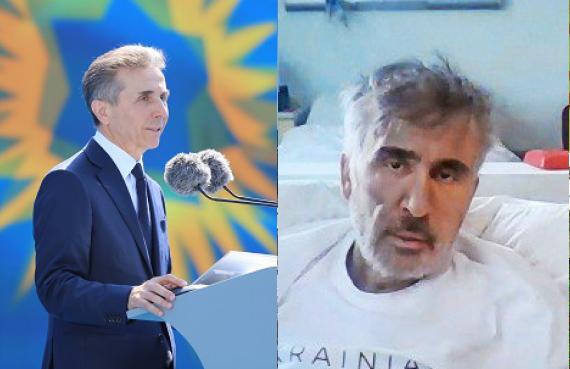
And the wilted rose of Tinatin and Catherine, Armageddon, and David, blossomed. And if someone tried to reproach them, the mainstream of democracy and progress would immediately silence them and shame them at the same time, because Georgia belonged to everyone.
This is how the well-forgotten, old castaways of Dream are abandoned to fate, remaining as a hope in the short-lived memory of Georgians. They came to life and soon appeared before us as a new force, who only yesterday the oppressed and persecuted by Ivanishvili’s opposition threatened to send to the political garbage dump.
No matter what you do, democracy is no joke. Yes, in this context, Salome Zourabichvili came to mind again: How quickly time changes in this world. If last year she shared photos of burnt Easter cakes, today her Facebook page is adorned with photos reflecting her concern for the opposition. However, the most heartbreaking photo remains the one taken during a brief encounter with Zelensky. And actually, what else can she do? The only right she has is to pardon political prisoners, which she persistently refuses to use. And again, all this is happening against the backdrop of her unforgettable book about the Russian-Georgian war, for the writing of which she has neither apologized to the Georgian people nor expressed any regrets, and which still adorns her office.
Finally, those who think this modernized president of the oligarch and other personalities are righteous people, please, whenever you want to praise them, remember Ilia’s immortal words that ‘not only unsubstantiated accusations, but even unsubstantiated praise is insulting to a righteous man.’



